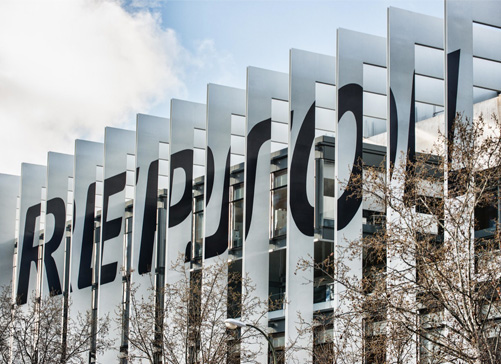Social enterprises
Social enterprises
Social enterprises are a type of entrepreneurship that combines profitability with the objective of addressing and solving social or environmental problems.

Types of diversity
The key to driving progress in the workplace


What is diversity in the workplace and why is it important?
Diversity in the workplace refers to when an organization has employees that encompass different genders, ages, races, cultures, religions, disabilities, and sexual orientations in its workforce.
In a scenario where companies are in a constant search for innovation and growth, the intrinsic value of each individual becomes fundamental. Cultural exchanges between people enriches the coexistence with different nationalities, genders, religions, cultures, and skills. In addition to strengthening an organization's competitive advantage, this also enhances its adaptability and resilience in an ever-changing world.
To foster diversity and ensure a safe space, companies promote inclusive strategies that aim for equal opportunities in the workplace.
Embracing inclusion policies brings with it a significant competitive advantage. Professionals feel accepted, supported, and treated fairly, which enhances the work environment and, consequently, the attraction and retention of talent.
Types of diversity
Work at Repsol
Join our team, and discover a job where you can train and develop as a professional.
Benefits of diversity in the workplace
A talent recruitment strategy that is focused on the importance of diversity has significant advantages. By expanding opportunities to recruit people with diverse profiles, it optimizes the ability to attract and retain talent that would otherwise not be available.
The main benefits of diversity in the workplace are:
Variety of perspectives
Collaborating as part of a team made up of people with different perspectives enriches the depth of knowledge. It makes it possible to approach a problem from different points of view and to discover new ways to face and understand it.
Greater innovation
If teams are diverse, it broadens the range of ideas, making it possible to jointly create innovative strategies that are beneficial for both the organization and the employees.
Increased productivity
When people within a company contribute diverse ideas and share them with each other, they boost their performance. They learn together and find greater motivation to tackle daily challenges, which in turn improves their productivity.

Enriched creativity
Professionals enrich their creativity by presenting solutions to the same problem. Therefore, this strengthens their ability to adapt to different scenarios. Such diversity of approaches is more likely when they represent different backgrounds, cultures, genders, and characteristics.
Improved flexibility and respect
When there are differences among employees, mutual respect is fostered within the team. Managing diversity in the company and providing equal opportunities for all people makes it possible to build an empathetic and united workforce.
Repsol's actions for diversity
At Repsol, we support the 2030 Agenda for Sustainable Development set out by the UN and are committed to achieving the 17 Sustainable Development Goals (SDGs).
The 2030 Agenda emphasizes the importance of building strong public-private partnerships to find solutions and share best practices to meet the 17 goals. These goals cover areas such as economic growth, social inclusion, and environmental preservation.
SDGs aimed at social inclusion
Goal 8: Decent work and economic growth
We strive to ensure an equitable and sustainable energy transition by supporting a safe and adaptable industry to address emerging challenges. This is how we create inclusive and equal opportunity jobs, while driving sustained socioeconomic growth.
Goal 5: Gender equality in the workplace
It's fundamental to raise awareness about diversity in an effort to transform mindsets, which promotes the inclusion and consideration of women in decision-making processes. Moreover, it's essential to support young female talent by offering support to fight inequality.

At Repsol, we are aware of the diversity that characterizes our company and value the opportunity to create an environment where each team member can reach their full potential regardless of age, gender, nationality, or other circumstances. We strive to integrate diverse cultures in our company by promoting equal opportunities, mutual respect, and a deep understanding of cultural particularities in an effort to enrich our project.
We are proud to say that Repsol comprises employees from more than 36 countries, where almost 32% of the leaders are women and more than 500 people with various disabilities work. However, we are not stopping there. We are continuing to work every day to build an exciting work environment, where each person can develop professionally and personally.
Social enterprises
Social enterprises are a type of entrepreneurship that combines profitability with the objective of addressing and solving social or environmental problems.

Difference between inclusion and integration
When we speak about "inclusion" and "social integration," it's not always clear what the difference is. However, both concepts differ in the way they approach the way people participate in society.